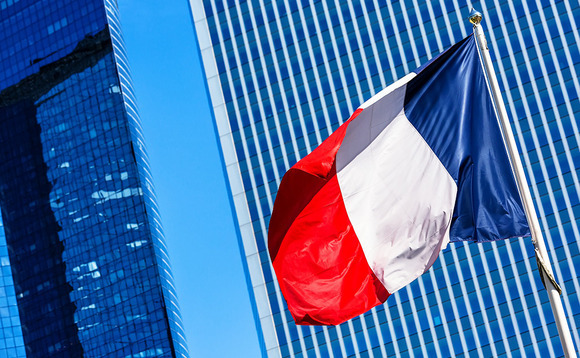
French PE readies for wide-ranging economic reforms

The PACTE plan currently working its way through French parliament could boost ESG and take-privates in the country, in addition to increasing public funding for venture. Francesca Veronesi reports
France's parliament is in the process of considering a bill that could become a catalyst for investment in the country, the Plan d'Action pour la Croissance et la Transformation des Entreprises (PACTE). The legislation is intended to help French companies become more innovative and to foster the creation of jobs.
French companies struggle to grow at the same pace as their counterparts in other European countries: there are only around 5,800 intermediate-sized enterprises in France, against 12,500 in Germany, according to a document published by the French government.
The bill, put forward by president Macron's government was debated for the first time and generally welcomed by the national assembly, in which Macron's party La République En Marche (LREM) has a 264 seat majority. However, the response in the senate in February was less positive. This is partly because LREM only has 23 of the 348 seats in the chamber, with the most prominent group being Les Républicains (145). With significant disagreement on the bill having emerged between the two chambers, the document is now expected to be reviewed for a second time by the national assembly in March.
The bill would affect French private equity and VC on different levels. Goodwin's partner Christophe Digoy highlights that ESG practises related to value-sharing procedures from shareholders to employees would be very much promoted. "The proposed law would allow private equity firms exiting their portfolio companies to share a part of profits among employees," he says.
The reform would help founders to sell their businesses more easily to GPs, notably via the tax reform of the ‘contribution-and-sale' mechanism" – Christophe Digoy, Goodwin
Less sophisticated versions of the value-sharing practice have been tested over the past decade by industry players, including Ardian, an early adopter. Dominique Gaillard, chair of the region's trade body France Invest and chair of Ardian, previously told Unquote the practice promoted effective value sharing, while increasing the attraction to private equity backing as a value creation process. "What the PACTE bill would be doing is simplifying the process, allowing some profits to be de-taxed by the government," Goodwin's Digoy says.
PACTE would also increase the possibilities for employees to acquire a stake in the business they work for. Digoy says: "This was possible beforehand, but no more than 149 employees could do so. Moreover, buy-backs of redeemable shares would also be facilitated via the bill. This is particularly beneficial for startups."
The bill would also encourage an increase in take-private deals in France. "The region has traditionally seen a lot fewer of these transactions in comparison to the UK, for example, since take-private are possible only if minority shareholders own less than 5%," says Digoy. "This threshold would be changed by the bill to 10%." The legislation would also promote an increase in buyouts from family owners. "The reform would help founders to sell their businesses more easily to GPs, notably via the tax reform of the 'contribution-and-sale' mechanism and the Dutreil scheme, facilitating the donation of parts of businesses between generations," Digoy says.
Foster venture, protect technology
The bill would enable the whole or partial sale of some state-owned assets, including airports operator ADP, gaming and lottery group Francaise des Jeux and gas and power group Engie. This will allow new cash generated by the sales to be used by the state for investment in the country's most innovative startups and businesses, via a €10bn fund.
PACTE would ensure the value created by technology-focused businesses – cybersecurity, robotics, AI and semiconductors – would remain beneficial to France-based corporates and GPs. Digoy says: "If a foreign business acquires more than one third of a tech-related company, the French ministry of the economy might be able to block the transaction. In this case, the initiative is similar to other reforms recently implemented in the UK and Germany."
This winter has seen the French government tested, with the anti-establishment gilets jaunes movement significantly destabilising the country's political landscape. The coming months will reveal whether the developments have had a significant impact on the government's confidence, or if its bullish attitude towards reforms, including PACTE, will persist.
Latest News
Stonehage Fleming raises USD 130m for largest fund to date, eyes 2024 programme
Sponsor acquired the public software group in July 2017 via the same-year vintage Partners Group Global Value 2017
Stonehage Fleming raises USD 130m for largest fund to date, eyes 2024 programme
Czech Republic-headquartered family office is targeting DACH and CEE region deals
Stonehage Fleming raises USD 130m for largest fund to date, eyes 2024 programme
Ex-Rocket Internet leader Bettina Curtze joins Swiss VC firm as partner and CFO
Stonehage Fleming raises USD 130m for largest fund to date, eyes 2024 programme
Estonia-registered VC could bolster LP base with fresh capital from funds-of-funds or pension funds









